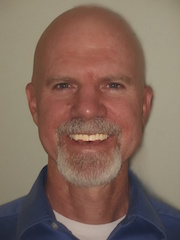Motivational Interviewing
 Motivational Interviewing (MI) is a collaborative conversation to strengthen a person’s own motivation for and commitment to change.
Motivational Interviewing (MI) is a collaborative conversation to strengthen a person’s own motivation for and commitment to change.
Motivational Interviewing focuses on exploring and resolving ambivalence and centers on motivational processes within the individual that facilitate change. The method differs from more “coercive” or externally-driven methods for motivating change as it does not impose change (that may be inconsistent with the person’s own values, beliefs or wishes); but rather supports a change in a manner congruent with the person’s own values and concerns.
Motivational Interviewing is grounded in a respectful stance with a focus on building rapport in the initial stages of the counseling relationship. A central concept of MI is the identification, examination, and resolution of ambivalence about changing behavior. Ambivalence, feeling two ways about behavior change, is seen as a natural part of the change process. The skillful MI practitioner is attuned to client ambivalence and “readiness for change” and thoughtfully utilizes techniques and strategies that are responsive to the client.
Recent descriptions of Motivational Interviewing include three essential elements:
- MI is a particular kind of conversation about change (counseling, therapy, consultation, method of communication)
- MI is collaborative (person-centered, partnership, honors autonomy, not expert- recipient)
- MI is evocative (seeks to call forth the person’s own motivation and commitment)
MI is more than the use of a set of technical interventions. It is characterized by a particular “spirit” or clinical “way of being” which is the context or interpersonal relationship within which the techniques are employed.
The spirit of MI is based on three key elements: collaboration between the therapist and the client; evoking or drawing out the client‘s ideas about change, and emphasizing the autonomy of the client.
Nic Showalter, M.A., CAC-III, is a skilled and masterful practitioner of Motivational Interviewing. He naturally employs the modality in every aspect of his sessions with clients. Nic believes that treatment of any addiction requires respect and understanding for the unique aspects of every individual. It has been stated by colleagues “Nic’s, excels at meeting clients where they are and building therapeutic relationships!”


